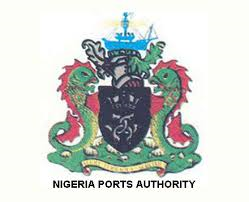For improved port efficiency; elimination of delays,
improved turn-around time of vessels, the Nigerian Ports Authority (NPA) on
Wednesday launched the Electronic Ship Entry Notice (e-SEN) platform as part of
activities marking two years stewardship of the present management.
Giving account of management’s performance in the last
two years, Managing Director of the NPA, Malam Habib Abdullahi, said the e-SEN
was part of the drive to use technology in improving services at the Nigerian
ports as well as improve revenue generation by the Authority.
two years, Managing Director of the NPA, Malam Habib Abdullahi, said the e-SEN
was part of the drive to use technology in improving services at the Nigerian
ports as well as improve revenue generation by the Authority.
He said the e-SEN had also integrated an e-payment
system of application fee to eliminate human interface which could cause
unnecessary delays and have a ripples effect on the entire trade chain.
system of application fee to eliminate human interface which could cause
unnecessary delays and have a ripples effect on the entire trade chain.
“We have integrated an online payment platform on the
e-SEN application, to simplify the payment processes to NPA and enhance the
provision of a link to the world economy, hereby encouraging international
trade.”
e-SEN application, to simplify the payment processes to NPA and enhance the
provision of a link to the world economy, hereby encouraging international
trade.”
Abdullahi noted that “the Ship Entry Notice manual process
was fraught with challenges, such as duplication of requests, slow response to
requests due to delayed verification and validation of ship data.”
was fraught with challenges, such as duplication of requests, slow response to
requests due to delayed verification and validation of ship data.”
According to him, stakeholders’ feedback revealed the
inconvenience faced in traveling back and forth between designated SEN offices
to pick up their SEN certificates and ports of discharge, loss of manpower
hours in business and the risk of traveling.
inconvenience faced in traveling back and forth between designated SEN offices
to pick up their SEN certificates and ports of discharge, loss of manpower
hours in business and the risk of traveling.
Also speaking at the event, the Executive Director,
Finance and Administration, Mr Olumide Oduntan, said the electronic payment
system integrated with the e-SEN would ensure a seamless progress beneficial to
the agents and to the NPA also.
Finance and Administration, Mr Olumide Oduntan, said the electronic payment
system integrated with the e-SEN would ensure a seamless progress beneficial to
the agents and to the NPA also.
He confirmed that the e-payment system for all port
transactions had recorded great success as it had impacted positively on the
cost of doing business at the nation’s ports.
transactions had recorded great success as it had impacted positively on the
cost of doing business at the nation’s ports.
“We are proud of what we have done because the
automated system would block any envisaged leakages and increase our revenue. I
can confidently say that the system is secured, so there is nothing to worry
about.
automated system would block any envisaged leakages and increase our revenue. I
can confidently say that the system is secured, so there is nothing to worry
about.
“It is important also that we start the process first
and see areas where improvements are needed, but we certain of its workability,
just as we have seen with the e-payment system,” he said.
and see areas where improvements are needed, but we certain of its workability,
just as we have seen with the e-payment system,” he said.
Making a brief presentation at the event, the
Executive Director, Marine and Operations, Engr. David Omonibeke, said the
essence of the e-SEN was to improve efficiency for ships going to the berths in
accordance with internationally-acceptable practice.
Executive Director, Marine and Operations, Engr. David Omonibeke, said the
essence of the e-SEN was to improve efficiency for ships going to the berths in
accordance with internationally-acceptable practice.
On its overall stewardship card, the managing director
said port infrastructure were improved which allowed the biggest vessel to call
at any port in West Africa (WAFMAX) with a length of 232.33 metres and capacity
of 4,5000 TEUs, requiring a draught of 13.5 metres, to start visiting the Lagos and Onne ports.
said port infrastructure were improved which allowed the biggest vessel to call
at any port in West Africa (WAFMAX) with a length of 232.33 metres and capacity
of 4,5000 TEUs, requiring a draught of 13.5 metres, to start visiting the Lagos and Onne ports.
He said that in 2013 alone, a total of 3,091 personnel
representing 90 per cent of the workforce of 4,245, were trained in different
capacity building programmes.
representing 90 per cent of the workforce of 4,245, were trained in different
capacity building programmes.
On its Corporate Social Responsibility (CSR) the NPA
boss disclosed that they donated security boats to support the security operations
of the Nigerian Navy, just as they also engaged in several other goodwill
projects across the country.
boss disclosed that they donated security boats to support the security operations
of the Nigerian Navy, just as they also engaged in several other goodwill
projects across the country.

































































